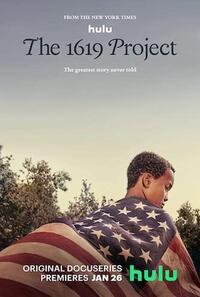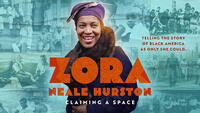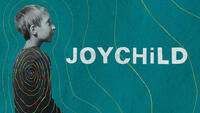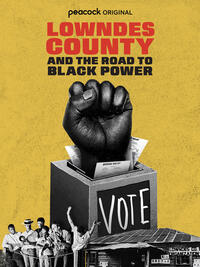
The six-part Hulu series The 1619 Project expands on the groundbreaking work of Pulitzer Prize-winning journalist Nikole Hannah-Jones and The New York Times. Episodes dive into themes of justice, fear, capitalism, music, race and democracy. The series reframes slavery as the true origin of the United States and centers on enslaved people and their descendants, whose contributions helped shape the nation. Hannah-Jones also uses her family’s history, along with others, to weave in how the legacy of slavery affects life in the United States today. (360 min.)
Available on Hulu | High School and Professional Development

Get to know the life and legacy of a writer, cultural anthropologist and folklorist in Zora Neale Hurston: Claiming a Space. From her studies at Barnard College and Howard University to her contributions to the Harlem Renaissance, this film, produced by Randall MacLowry, examines Hurston’s independence, courage and ingenuity as she trekked through rugged, all-male and white spaces during her academic training. She carved out her own lane in anthropology. In fact, Hurston was a pioneer in the discipline, challenging perspectives on race, gender and class through her work in the South and the Caribbean. A valuable resource for students, this film works to illuminate an American literary giant. (112 min.)
Available on PBS | Middle School and High School

Joychild is a beautiful short film directed by Aurora Brachman about a young child who reflects on how they disclosed their gender identity for the first time. The caregiver and child revisit this dialogue amid a montage of black-and-white footage highlighting their relationship and the child partaking in activities that bring them joy. It is evident when the child says “I’m not a girl” for the first time that it frees them to be their authentic self. This emotional retelling of such a transformative moment honors identity, belonging and the power of being true to yourself. (6 min.)
Available on PBS | Middle School and High School

Lowndes County and the Road to Black Power*, from directors Geeta Gandbhir and Sam Pollard, shows the history of radical movement work by grassroots organizers, most notably the Student Nonviolent Coordinating Committee (SNCC), in rural 1960s Alabama. Just miles from Montgomery and Birmingham—cities whose voting rights campaigns received the help of charismatic leaders such as Dr. Martin Luther King Jr.—Lowndes County activists relied heavily on collective power. It’s during this moment that the phrase “Black Power” emerges. This film, which includes archival footage, provides an essential piece of the civil rights movement story and uplifts the power of community organizing to create social change. (90 min.)
Available on Peacock | High School and Professional Development

Rumble: The Indians Who Rocked the World, a documentary from Rezolution Pictures, showcases the fundamental role of American Indians in rock and roll music. Opening with the infamous Link Wray—a member of the Shawnee nation and credited as the inventor of the power chord—viewers are introduced to musicians whose Native American identity may not be pronounced. As Jesse Ed Davis explains, “Be proud that you are an Indian but be careful who you tell,” because of the possibility of marginalization within the industry. Musicians including Jimi Hendrix, Robbie Robertson, Redbone and Buffy Sainte-Marie are celebrated to highlight the ways Native American music and musicians innovated the genre. (102 min.)
Available on Netflix | High School and Professional Development
*This film contains material that may be unsuitable for younger children. LFJ recommends that educators and parents or caregivers preview the film before deciding to show it to students.